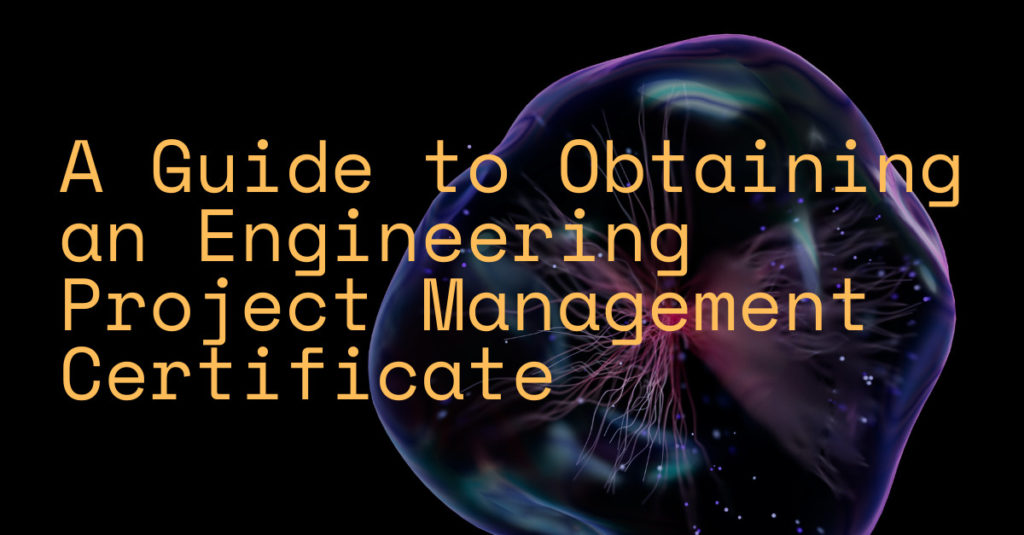
Project management is an essential component of the engineering profession. It is the process of planning, organizing, and managing resources to achieve specific project goals and objectives. A project manager’s function is critical in completing projects on schedule, within budget, and satisfying all stakeholders. As the engineering business grows, the demand for qualified and accredited project management experts is rising. Obtaining a certification in engineering project management may improve engineering professionals’ job prospects and help them manage projects more successfully.
What is the definition of Engineering Project Management?
The application of knowledge, skills, tools, and procedures to project activities to achieve project requirements is known as engineering project management. It covers the entire project life cycle, from start to finish, and entails coordinating the work of a project team to achieve specific goals and objectives.
Engineering project management key principles and practices include establishing project scope, generating a project plan, forming a key project team, managing project resources, and monitoring and controlling project progress.
Construction of structures and infrastructure, creation of new goods, and implementation of new systems and procedures are all examples of frequent engineering projects that need project management abilities. These projects are frequently complicated and include several stakeholders, making the position of a project manager critical to the project’s success.
Engineering Project Management Certifications of Various Types
There are several engineering project management certificates to choose from, each with its criteria, cost, and content. The Project Management Institute’s Project Management Professional (PMP) credential is the most generally recognized and acknowledged (PMI). The PMP certification, recognized worldwide, is designed for project managers with at least five years of experience.
Another prominent certification given by PMI is the Certified Associate in Project Management (CAPM), designed for people with less experience who want to enter the area of project management.
PMI now offers the Program Management Professional (PgMP), designed for professionals managing several projects, programs, and portfolios.
Each certification has its own set of qualifications, and the most excellent match for a person will be determined by their degree of expertise and the kind of projects they manage. Before selecting, individuals should examine the many available certifications and talk with a specialist.
Getting Ready for Certification and Specialization
Preparing for a certification test might be difficult, but with the correct attitude, it is doable. Enrolling in a certification training course, which will provide a full review of the subject included in the test and tips and techniques for passing, is one of the best preparation methods.
Individuals should evaluate the test topic outline and study materials the certifying authority offers and attend a certification training session. The PMI, for example, provides a wide range of study materials such as books, study guides, and practice exams.
Individuals could also use internet resources and study groups, which may give essential support and inspiration during preparation.
It is crucial to remember that the format and structure of certification exams will differ based on the certifying organization and the type of certification sought. The PMP exam, for example, is a computer-based test that consists of 200 multiple-choice questions, whereas the CAPM exam consists of 150 multiple-choice questions.
Professional Development and Continuing Education
Obtaining an engineering project management certification is only the first step in a lifelong path of professional growth. Continuing education and professional development are critical for remaining current on industry developments and best practices.
For example, the PMI requires qualified professionals to get continuing education units (CEUs) to keep their certifications. This criterion guarantees that qualified professionals are constantly learning and growing.
Certified engineering project managers can further their education and professional development through various tools and opportunities. Examples are attending conferences and seminars, participating in online training and webinars, and joining professional organizations like the PMI.
Agile project management, becoming increasingly significant in the engineering business, provides a framework for managing projects in an ever-changing environment. Furthermore, many firms are increasingly implementing agile project management approaches that stress flexibility, collaboration, and quick iteration. As a result, qualified engineering project managers should research agile approaches and how to apply them to their projects.
PMP & PMI
Finally, having a certification in engineering project management may improve engineering professionals’ employment chances and help them manage projects more efficiently. The many certificates, such as PMP, CAPM, and PgMP, each have criteria, cost, and content. Before selecting, individuals should examine the many available certifications and talk with a specialist.
Continuing education and professional development are critical for remaining current on industry developments and best practices. For example, the PMI requires qualified professionals to get continuing education units (CEUs) to keep their certifications. As a result, skilled engineering project managers should research agile approaches and how to apply them to their projects. Overall, acquiring a certification in engineering project management is a wise investment in your career that will pay you in the long term.

